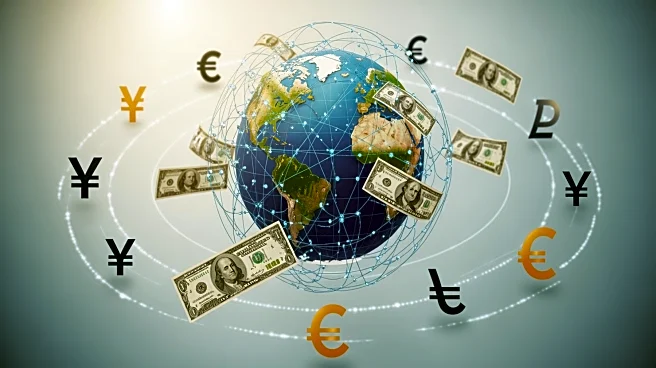What's Happening?
The global demand for U.S. Treasuries is being influenced by international trade suppression and geo-economic fragmentation. EU member states and the UK have increased their private demand for U.S. Treasuries,
while official holdings have stalled. The aggressive trade policy of President Trump has contributed to valuation risks for dollar-holders. China and Japan, historically large holders of U.S. debt, have reduced their Treasury holdings due to geopolitical considerations and weak returns. The shift in demand dynamics reflects broader economic trends, including automation, supply chain disruptions, and intensified trade with Africa.
Why It's Important?
The changing demand for U.S. Treasuries has significant implications for global financial stability and economic growth. As countries adjust their holdings in response to geopolitical tensions and trade policies, the valuation risks for dollar-holders could impact the safe asset status of U.S. Treasuries. The shift in demand patterns may influence global perceptions of U.S. economic stability and the role of the dollar as a reserve currency. The evolving geo-economic landscape could lead to increased macroeconomic volatility and affect international monetary systems.
What's Next?
Negotiations and policy adjustments may be necessary to address the impact of trade suppression on global demand for U.S. Treasuries. Stakeholders, including governments and financial institutions, will need to consider strategies to manage valuation risks and maintain confidence in U.S. debt securities. The potential for further geo-economic fragmentation could influence long-term investment decisions and global economic trends.
Beyond the Headlines
The ethical and cultural dimensions of trade policies and their impact on global financial systems may become more prominent. Long-term shifts in investor behavior and geopolitical considerations could influence the stability of international monetary systems and the role of the dollar as a reserve currency. The balance between economic rationales and geopolitical brinkmanship will be a key consideration for policymakers and investors.










